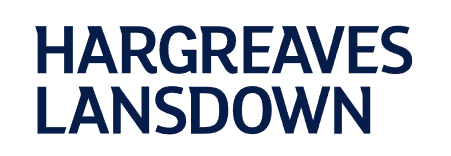If you’ve ever wondered ‘What are shares’ or ‘why are shares so popular?’ – this ultimate guide to shares is the right place to begin!
What are shares?
You gain partial or full ownership of a company by owning shares, also known as ‘stocks’ in the US.
To delve deeper, we need to understand what companies are and why shares exist in the first place.
What is a company?
Although we often use the words interchangeably, ‘Company’ and ‘Business’ don’t actually mean the same thing. As you’ll read in the best business books, A ‘business’ is an enterprise carried out by individuals or a group of people, usually to create a profit. If they choose to, the business owners may decide to fill in paperwork with their local regulator of companies (Companies House in England and Wales), and carry out the business behind a new identity – a company.
A company is like an artificial ‘person’ in the eyes of the law. A company has a name, an address. You could even argue it has parents, in the form of its original owners!
Once the founders form a company, all activities like buying and selling, and all assets and liabilities like cash and loans, belong to the company itself, rather than the owners.
Why are shares necessary?
Shares establish who owns this new entity. It isn’t a real person after all. When a company is created, its paperwork will define how many ‘shares’ the company will have. For example, a company may be split into 1,000 shares. These shares are collectively known as the ‘share capital’.
Anyone who owns a share will be entitled to some of the company profits that are paid out each year as dividends. They will also be able to exercise some control over how the business is run.
If two brothers created a company and contributed the same amount of money into the effort, you would expect that upon registration, each brother would own 500 shares.
In a simple setup, owning half the shares means they own half the company each.
This brings us back to the question of – why do we have shares? Why couldn’t the company paperwork simply state that each brother owns half of the company? Isn’t that clear enough?
Well, shares are useful for two reasons:
- Shares are an easy way to clearly define who owns what proportion of a company at any given moment. There can only be one registered owner of each share, and therefore there is no ambiguity. In contrast, a wordy statement in the initial company documents could invite multiple interpretations and legal battles in court.
- Shares make it easy to change the ownership of a company. Ownership can simply change hands by one person selling their share certificates to another. When this happens, there is no need to go back and re-write the company formation documentation. The company can simply update its share register to show the purchaser as the new owner of the shares after the transaction.
Check out the best stocks and shares books for more information about this exciting asset class and inspiration for what to invest in now.
What is the difference between shares in a private company versus a public company?
There are two main types of companies in the UK; Private limited companies and Public limited companies.
Private limited companies end their company name with ‘Limited’, whereas Public limited companies end their name with PLC. For example; Marks and Spencers PLC and Domino’s Pizza UK & Ireland Limited.
So what is the difference between a PLC and a Ltd company? The main difference is that a shareholder in a PLC is free to sell their shares to whomever they like, whenever they like. In contrast, shareholders in a Ltd company must receive approval from other shareholders before selling their stake.
Is it possible to buy both private limited and public limited companies shares on a stock exchange?
With the freedom for its shares to be exchanged between any members of public, PLCs are a perfect match for stock exchanges. On stock exchanges, such as the London Stock Exchange shareholders trade through middlemen known as stockbrokers and ‘market makers’.
The restrictions over Ltd company shares would interfere with the speed and ease of trading. For this reason, private limited companies are never ‘listed’ on an exchange.
What is the reward for owning stocks and shares?
As a shareholder, you receive a share of dividends paid out by the company. You enjoy gains (or suffer losses) if the value of your shares moves up (or down). If you own those shares in a stocks & shares ISA, those gains won’t be subject to tax.
Of course, not all companies increase in value over a given period. Investors need to choose the best companies to invest in with care.
What are the best UK stockbrokers?
We’ve shortlisted the best of the best UK stockbrokers for retail investors below to help your search:
Trade shares with zero commission. Open an account with just $100. High performance and useful friendly trading app. Other fees apply. For more information, visit etoro.com/trading/fees.
Large UK trading platform with a flat account fee and a free trade every month. Cheapest for investors with big pots.
The UK’s no. 1 investment platform for private investors. Boasting over £135bn in assets under administration and over 1.5m active clients. Best for funds.
Youinvest stocks & shares ISA offers lower prices the more you trade! Which? 'Recommended Provider' for last 3 years.
Choose a pre-made portfolio in minutes with Nutmeg. Choose your level of risk and let Nutmeg efficiently handle the rest.
Buy and sell funds at nil cost with Fidelity International, plus simple £10 trading fees for stocks & shares and ETFs.
Capital is at risk
Trade stocks & options on the advanced yet low-cost Freedom24 platform that arms retail investors with the tools to trade like professionals.
Capital is at risk
Please also see our Hargreaves Lansdown review, our AJ Bell review and interactive investor review.
What are dividends?
A dividend is a lawful distribution of earned profits. Most companies pay dividends at a modest, but sustainable level. Companies either pay them every 3, 6 or 12 months.
However, not all companies pay dividends! Start-up companies still in an early growth phase, need all the cash they can get to fund expansion plans. These types of companies opt to pay no dividends. Instead, they reinvest the money internally to fuel faster growth in the value of the company. In theory, this will propel the share price of the business upwards instead.
Let’s look at a real-life example of a company which loves to pay dividends. The drug company GlaxoSmithKline paid dividends of 80p per share in the 12 months to July 2019. The share price of GlaxoSmithKline is approximately £16.
So, we could pay £16, wait a year, and expect to collect payment of 80p. It’s effectively a 5% interest rate. A thank you for owning the shares! In technical terms, we would say the dividend yield is 5%.
If you buy shares through a stockbroker or investment company, dividends will appear in your account automatically after a distribution – you don’t need to do anything. Dividends find their way to their owners as if on autopilot!
It is the job of management to propose the size of the dividend each year. Shareholders can vote for or against this motion at the Annual General Meeting (AGM) of the company.
How can you profit from an increase in the share price?
Remember, dividends are only half of the story. Changes in the share price will also increase or decrease the value of the shares you hold.
When the market value of a share is higher than what you originally paid for it, you have made a profit ‘on paper’. The phrase ‘on paper’ recognises that this gain is only true at this point in time. The gain will continue to move as the price does.
All stockbroker and investing accounts will continuously update the value of your shareholdings and show you the latest cumulative gain or loss.
At some point in the future, you will sell your shares and realise the gain or loss at that date.
What causes a share price to increase or decrease?
The price of a share is ultimately based upon the value of all the dividends that experts expect the share to pay in the future.
‘Is it really that simple?’ I hear you ask. ‘Isn’t a share price linked to news about the company, such as whether they meet sales targets, develop new products, or increase profits?
The answer is that all of these factors do move the share price. However, they only do so because they influence expectations of future profitability, and hence; the value of future dividends.

An example of how a share price movement is triggered
Earlier, we calculated that GlaxoSmithKline’s annual dividends amounted to 5% of the share price. This means that new investors are happily buying in at a price that gives a dividend yield of 5%. We can assume that this 5% return is satisfactory to buyers, given that it is the market price.
Imagine an extreme scenario in which news emerges that a cancer drug being trialled by GSK has been a runaway success and will double the profits of the company.
If we assume that the company distributes all profits in the form of dividends, we would expect dividends to double from 80p to £1.60 per share. Said another way, the dividend yield is set to rocket from 5% to 10% if the share price remains the same.
We have already established that the market feels a 5% dividend yield is a perfectly acceptable level of return for a company of this size and risk. Therefore the new 10% yield has made the shares an irresistible bargain at their current price. No other shares on the market are offering such a high return for this level of risk.
Investors will rush in to buy the shares. At the same time, sellers will either withdraw their shares from sale or increase their prices when they process this new information. Given that the market feels that a 5% dividend yield is a fair return, bargain hunters will continue to bid higher and higher until the market price of the share hits £32. At this price, the forecast £1.60 dividend represents only a 5% yield for new investors.
The bargain price has corrected itself, so trading volumes return to normal and the price stabilises at this level.
This was a dramatic example, but it helps us understand how a change in expectations and market forces act together to move a share price in response to new information.
Enjoying this article? To read more about stocks & shares, check out our ranking of the best stocks & shares books.
Why are shares popular investments?
- Shares are popular because they generate superior returns. The FTSE 100 has risen by 375% in the last 25 years (source). Property, bonds and savings accounts all take a back seat to the returns generated by the equity asset class.
- Shares are convenient because they are more liquid than investments in property. ‘Liquid’ means that they can be sold and converted into cash quickly and reliably. In the UK stock market, an investor can expect to sell shares within a minute of clicking ‘sell’ and will see the cash within 5 working days. Trading continues even during tough conditions such as market turmoil. This compares favourably to property (such as housing or offices) which are difficult to sell quickly, and which may not find a buyer at all in a difficult climate.
- Participating in the stock market is also exciting. While the number of choices can sometimes put you off from starting your investing journey, it will also increase your sense of accomplishment. Many people enjoy using their freedom to pick their own investments by investing in ethical companies.
Why do shares generate higher returns than bonds or other investments?
Shares receive a higher return because shareholders need a higher return to compensate them for the risks they take. If shares only provided a return similar to bonds or savings accounts, it would be illogical to put money in shares – their market values are more volatile and their returns are less certain in the short term. The best funds to invest in for higher returns are therefore funds that hold higher-risk assets.
Debtholders have a relatively sweet deal – they have the right to repossess the assets of the borrower and will have priority over shareholders if the company collapses. These rights reduce the risk for the lender or bondholder and therefore these investments needn’t offer investors as high a return.
The relationship between risk and return is interesting, and in our article about the science of diversification we explain why investors choose to combine shares with lower-yielding investments such as bonds to produce steadier returns overall.
Course Progress
Learning Summary
What are Shares and Why do people invest in Shares?
Shares grant their owner partial or full ownership of a company.
Both private and public companies issue shares. However, members of the public can only invest in Public Limited Companies (PLCs) through their stockbroker. PLC shares are traded on Stock Exchanges.
Shareholders receive a share of any dividends, which is shareholder income funded by the profits of the business.
Not all companies pay dividends. Start-ups or cash-starved businesses may choose to retain cash to spend on expansion which will improve their ability to pay dividends in the future.
The annual dividend divided by the price of a share calculates the dividend yield. The dividend yields sometimes exceed the interest rate paid by bonds and savings accounts.
Shareholders also experience any gains or losses arising from changes in the market value of their shares. News and events which change market expectations of future dividend payments cause a change in the valuation.
Shares are the highest returning mainstream investment. This is because they carry the most risk.
Quiz
Take Action
- If you're curious how something as complex as the stock market ever formed, I recommend you visit the Wikipedia article for the London Stock Exchange. The timeline tracks the development of the sophisticated platform, from its humbe coffee house origins.
Next Article in Course

Before you move on, please leave a comment below to share your thoughts. Have you always wanted to invest in shares? Has your attitude towards shares changed as you've grown older?






